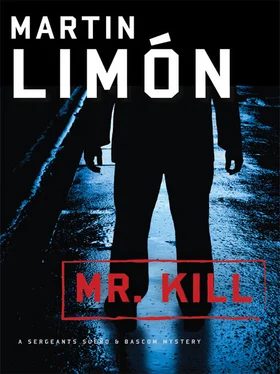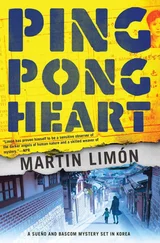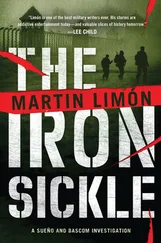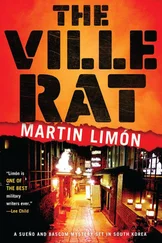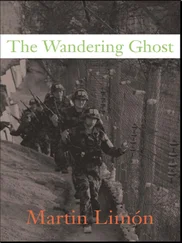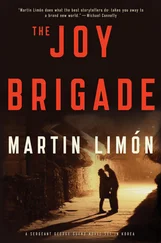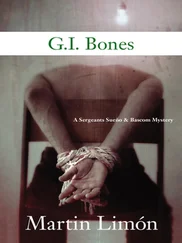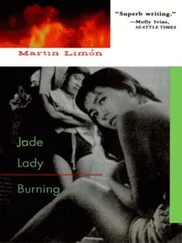Martin Limon - Mr. Kill
Здесь есть возможность читать онлайн «Martin Limon - Mr. Kill» весь текст электронной книги совершенно бесплатно (целиком полную версию без сокращений). В некоторых случаях можно слушать аудио, скачать через торрент в формате fb2 и присутствует краткое содержание. Жанр: Полицейский детектив, на английском языке. Описание произведения, (предисловие) а так же отзывы посетителей доступны на портале библиотеки ЛибКат.
- Название:Mr. Kill
- Автор:
- Жанр:
- Год:неизвестен
- ISBN:нет данных
- Рейтинг книги:4 / 5. Голосов: 1
-
Избранное:Добавить в избранное
- Отзывы:
-
Ваша оценка:
- 80
- 1
- 2
- 3
- 4
- 5
Mr. Kill: краткое содержание, описание и аннотация
Предлагаем к чтению аннотацию, описание, краткое содержание или предисловие (зависит от того, что написал сам автор книги «Mr. Kill»). Если вы не нашли необходимую информацию о книге — напишите в комментариях, мы постараемся отыскать её.
Mr. Kill — читать онлайн бесплатно полную книгу (весь текст) целиком
Ниже представлен текст книги, разбитый по страницам. Система сохранения места последней прочитанной страницы, позволяет с удобством читать онлайн бесплатно книгу «Mr. Kill», без необходимости каждый раз заново искать на чём Вы остановились. Поставьте закладку, и сможете в любой момент перейти на страницу, на которой закончили чтение.
Интервал:
Закладка:
“You’re the CID agents from Seoul, aren’t you?”
I nodded.
“We’ve been expecting you for hours. And now this shit happens at the club.”
“What shit?” Ernie asked.
“You’ll see.”
The MP motioned to his partner, and the rusted wheels of the twelve-foot-high chain-link fence began to roll open. A whistle shrilled, Ernie shoved the jeep in gear, and we drove slowly into the compound.
Camp Stanley was the home of the 2nd Division Artillery headquarters, more commonly known as DivArty. Two of the division’s artillery battalions were stationed at this camp, the other in a forward position closer to the Demilitarized Zone. When Ernie parked the jeep behind the two-story edifice that was the DivArty Officers’ Club, we could hear a steady pounding, like rhythmic thunder.
“What’s that?” Ernie asked.
“Hell if I know.”
In the long hallway leading into the main ballroom, black-and-white chain-of-command photos hung on whitewashed walls. Crew-cut men wearing pressed green uniforms glared out at the world. I stopped at the last photo, the photo of the colonel who was the current DivArty commander. There wasn’t much to it: pale skin, vapid eyes, thin lips, short gray hair. Even his wire-rimmed glasses were almost invisible. Still, he was doing his best to look terrifying.
Ernie and I entered the ballroom.
A small man, hands on his hips, wheeled on us. I recognized the face, the same one I’d just been looking at in the chain-of-command photo. Instead of a green uniform, he was wearing a straw hat, an embroidered cowboy shirt, and tight blue jeans held up by a long-horned brass belt buckle.
“Where in the hell have you two been?” Spittle erupted from his tight lips.
The thunder surrounded us now, rattling the walls of the huge ballroom. Benches were filled with row after row of G.I. s in fatigue uniforms, some of them wearing cowboy hats similar to their commander’s. Most of them held cold cans of beer in their hands. It was their combat boots that were causing the thunder. They were stomping them on the wooden floor, in a cadence that threatened to shake the building apart.
The thin-lipped commander approached me.
“She refuses to go on,” he said, pointing at the stage. “That obstinate woman is willing to let my troops sit here cooling their heels, and she won’t make a move to do her duty until the ‘detectives from Seoul,’ as she calls them, show up. And I’m assuming you’re the detectives from Seoul.”
It hadn’t required great powers of deduction to figure out who we were. Ernie and I are required to wear civilian clothes while we work. That way no one will know our military rank and, theoretically, we can’t be bullied by someone of higher position. But according to the 8th Army Supplement to the Department of the Army regulation, we’re not allowed to wear just any civilian clothes: we’re required to wear coats and ties. This is 1974. No one wears coats and ties, not unless he’s forced to. With our short haircuts, Ernie and I are like blinking advertisements: “Here comes the Criminal Investigation Division.”
“Yes, sir. We’re the detectives from Seoul.”
“Then get up there,” he said, pointing once again at the stage, “and get that woman and her band off their butts and out there entertaining my troops.”
I nodded to the colonel, and Ernie and I made our way past the thundering crowd, climbed up a short flight of steps, and pushed through musty velvet curtains. A naked bulb shone at the end of a short hallway. Ernie passed me and stepped first through the open doorway.
Five women looked up at us. All of them blondes. Each woman wore tight blue jeans and a tighter red-and-whitechecked blouse. Straw cowboy hats had been pinned expertly to the back of their elaborate coiffures.
One of them pushed back her Stetson. “You don’t look like much,” she said.
“Kinda scrawny,” another added, “but you’ll have to do.”
They broke into raucous laughter.
After making us swear that we wouldn’t leave before the show ended, Marnie Orville led her Country Western All Stars out on stage. One of them strapped on a guitar, and two more took up positions behind an electric bass and a steel guitar, respectively. Finally, a woman with straight long blonde hair sat behind the drum set. Marnie, the tallest and most voluptuous of the five women, fiddled with the keyboard, glanced at her fellow musicians, and nodded to the Korean man standing next to hemp ropes on pulleys. As he pulled back the curtains, spotlights were switched on out front and Marnie stomped her boot. Electric amps hummed and the band clanged to life, belting out some country tune that I’d never heard before.
The G.I. s in the audience leaped to their feet, roaring their approval. Ernie covered his ears. He stepped toward me and shouted in my ear.
“Why’d you promise all that to her?” he asked.
“I was being coerced. I had to get them out on stage,” I shouted back.
“Now we’re her slaves.”
I shrugged. “Weren’t we anyway?”
He crossed his arms and frowned at the five women gyrating before us. “Hayseed heaven,” he said.
“You stay here,” I told Ernie, “keep an eye on the girls and their equipment.”
“What do you think I’m doing?” Ernie asked.
I worked my way backstage and then out behind the Officers’ Club, where the van and the equipment truck were parked. Four Korean men-two drivers and two men to load and unload the equipment-squatted between the vehicles, smoking and murmuring among themselves. A flood lamp illuminated the scene. As I approached, they stopped smoking and stared at me above glowing embers.
“Anyonghaseiyo,” I said. Are you at peace?
The men nodded, bemused by my use of the Korean language. As I continued using their native tongue, their eyes grew wider and then they were smiling. In a few minutes, we were old pals. The eldest driver and leader of the group was named Mr. Shin. He offered me a cigarette, which I politely refused, and then he started telling me about their adventures of the last few days, driving five white women from their hotel in Seoul to the nether regions near the heavily armed Demilitarized Zone that divides North and South Korea.
I listened, not asking any questions, taking it in.
Inside the Camp Stanley Officers’ Club, guitars continued to clang, women shouted, men roared.
A half hour later, the music subsided and Ernie and I joined the band in their dressing room. I pulled out my notebook, sat on a stool, and started to ask them about the complaints they had alerted us to. Before we could finish, their break was up and they returned to the stage. G.I. s were already clapping their hands and stomping their feet again. When the curtain opened, the audience, on cue, went mad.
Ernie stayed backstage while I returned to Mr. Shin and the loading crew. After the final set, Ernie emerged from the back of the Camp Stanley Officers’ Club. He pulled me aside.
“They want me to take them to a nightclub,” he told me.
“Who?”
“Marnie and the other girls.”
“We’re calling her Marnie now? Not Miss Orville?”
Ernie ignored the remark.
“What about the time?” I asked. We had only an hour and a half until the midnight curfew, equipment to inventory and load, and a long ride back to Seoul.
“They’re counting on me,” Ernie said, “to work something out.”
“We could get in trouble behind this,” I said.
Ernie grinned. “Trouble I can handle. Especially when it’s packed in tight blue jeans.”
3
By the next morning, Staff Sergeant Riley had already collected much of the information I’d asked him to collect concerning the Blue Train rapist. He shoved the printouts across his desk. I sipped on my coffee and started going over them.
Читать дальшеИнтервал:
Закладка:
Похожие книги на «Mr. Kill»
Представляем Вашему вниманию похожие книги на «Mr. Kill» списком для выбора. Мы отобрали схожую по названию и смыслу литературу в надежде предоставить читателям больше вариантов отыскать новые, интересные, ещё непрочитанные произведения.
Обсуждение, отзывы о книге «Mr. Kill» и просто собственные мнения читателей. Оставьте ваши комментарии, напишите, что Вы думаете о произведении, его смысле или главных героях. Укажите что конкретно понравилось, а что нет, и почему Вы так считаете.
